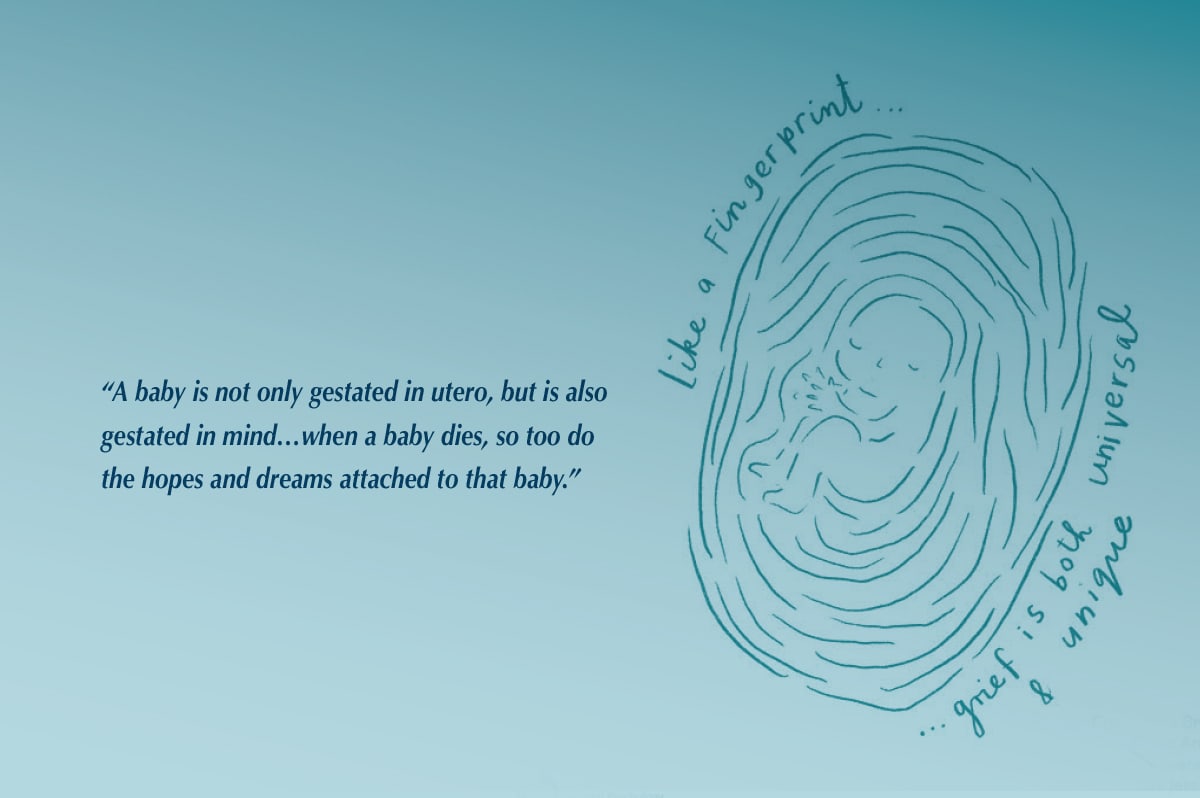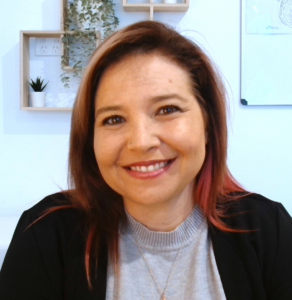

Perinatal Training Centre has developed an Integrated Perinatal Bereavement Therapy training that is comprehensive, trauma-responsive, attachment-based, and developmentally-inclusive.
Firmly embedded in the specialist field of perinatal and infant mental health, our training program uniquely knits together four dominant paradigms of practice:
We pull from theory, research, and clinical wisdom to leverage theoretically sound, evidence-based and clinically-rich formulations that match the real-life complexity of the clients you support.
Our training program includes 24-hrs of Continuing Professional Development.
‘Live’ online immersive workshop meetings are complimented by pre-recorded lectures.

Perinatal loss is like no other form of loss. Birth and death join in a way that does not fit our understanding of natural order.
The field of perinatal loss is a vast landscape covering preconception and assisted conception issues, early and late miscarriage, termination including termination for medical reasons (TFMR), prematurity, stillbirth and neonatal death.
Perinatal loss is more than the loss of a baby. A baby is not only gestated in utero but is also gestated in mind: when a baby dies, so too do the hopes and dreams attached to that baby. In addition, due to the under-acknowledged nature of perinatal loss societally, the grief experience becomes disenfranchised. Subsequently, feelings of shame, guilt and isolation arise.
Pregnancy or infant loss is enormously impactful to parents, leaving them on shaky, uncertain ground. World assumptions have been shattered. Perinatal loss challenges a woman’s fertile self-image, leaving her to question her capacity to create, gestate and deliver something alive and good.
Working with families bereaved from pregnancy and infant death can be harrowing. The emotionally-charged nature of perinatal loss lands the clinician squarely in the territory of unbearable, intolerable and unspeakable aspects of human experience. The clinician is required to join with their patient/client to bear the unbearable, tolerate the intolerable and find words for the unspeakable experiences that occur when a pregnancy ends and a baby dies.
Live workshop meetings are facilitated by two or more of the Training Team, where the emphasis is on therapeutic frames, formulation and intervention at an advanced level.
Content includes:
The weekly frequency of live meetings allows for a regular digestion of content and process, while providing opportunity for the application of material in your therapy work between meetings.
Live training and participation is key to learning. Reflecting together on this difficult and stirring material allows for strengthening of the ‘reflective muscles’ necessary for the therapeutic work in perinatal bereavement. Pre-recorded, or on-demand training, while useful for access to information, cannot replicate this necessary experiential learning required for therapists.
Approx. 4-hrs total
Pre-recorded lectures compliment the live meetings and orient participants to concepts that are then explored and expanded as a group in the workshops.
Content includes:
Participants are invited to actively reflect on the material as it is relevant to the families and communities they serve, to personalise the information and optimise the training experience.
More information by clicking on the various tab headings above.
This workshop is designed for multidisciplinary health professionals either currently working with, or who have a desire to work with, families bereaved following a pregnancy or infant loss, as well as those holding parents through a subsequent pregnancy. The training program is suitable for those working in an ongoing therapeutic capacity with bereaved parents. First responders, eg., delivery suite nurses, sonographers, OBs, may benefit from the training too, but this is not our primary target audience.
It is advisable not to engage in this training while pregnant or in the early postpartum.
Stable internet connection with camera and sound is required. The Zoom platform is used for the online meetings.
Please ensure you will be in a quiet, private space during the live meetings.
As this is a post-graduate level training, experience in mental health work is assumed. Assumed knowledge: experience in general assessment, diagnosis, formulation and treatment planning of mental health conditions. Please contact us if you have queries about this.
This training program focuses on both knowledge acquisition and clinical skills development.
Participants are expected to engage in supplemental learning between live Sessions. Activities include viewing video tutorials (4 hrs), reading and reflective exercises. Participants should allow up to 1-hr of supplementary learning each week between Sessions.
It is expected participants will attend all Sessions live.
*Please note that this is a live training event and attendance and participation are expected.*
Please be sure to check all the dates and times for the training and be sure you can attend. However, we understand that things come up and it may not be possible to attend every session live. In the event that you cannot attend live due to an unforeseen event (eg, illness), the session will be recorded so you can watch later and do not miss the content. In order to receive a Certificate of Attendance for the training, no more than one live session can be missed as participation is key to learning.
Registration Fee: $1985
$1785 for PIMH Intensive alumni
$985 / $785 deposit required at Registration
Balance due at least 4-weeks prior to commencement of training and can be made as a single payment or two instalment payments.
Cost includes GST and all participant inclusions
Cancellation Policy
Cancellations: Full amount less $100 admin fee will be provided for cancellations received in writing up to four weeks prior to event. No refund after this time as resources for the training will be shared.
Perinatal Training Centre is a trusted training provider in the field of perinatal and infant mental health (PIMH). We have held contracts for the provision of PIMH training with the Department of Health and Human Services (DHHS) Victoria, the Northern Territory Government and the Government of South Australia. Independently, we have offered training nationally in PIMH since 2012.
Our original ‘Bearing the Unbearable’ program was the training program of choice for the NHS in the UK as they developed their National Bereavement Care Pathway. Our training was undertaken in 2022 by dozens of UK health professionals, supporting their delivery of bereavement care to communities across the UK.
'Grief, Trauma and Attachment: An Integrated Approach to Perinatal Loss' was developed by Dr Bronwyn Leigh, Carla Anderson and Dr Charise Deveney, and is an expanded version of our original perinatal loss training, ‘Bearing the Unbearable’, which was developed by Dr Bronwyn Leigh, Carla Anderson, Dr Charise Deveney and Julie King.

Dr Bronwyn Leigh is a Clinical Psychologist, experienced trainer and Director of the Perinatal Training Centre and the Centre for Perinatal Psychology. Bronwyn is deeply interested in the psychological aspects of becoming a parent, the emotional development of infants, and parent-infant relationships. Her interest in perinatal loss is long-standing and preceded her qualification as a psychologist, volunteering as a telephone grief counsellor to parents bereaved from pregnancy loss or neonatal death. She later held an honorary position as the national trainer in perinatal loss counselling for the Bonnie Babes Foundation, travelling Australia to train others in perinatal loss counselling. She has provided media interviews discussing perinatal loss and grief and has facilitated various workshops in the perinatal field nationally.

Carla Anderson is a Clinical Psychologist working in her private practice Perinatal, Child and Family Psychology for the past thirteen years, with a special interest working with families within the perinatal period, particularly perinatal loss. Carla’s passion began prior to this with the Bonnie Babes Foundation as a volunteer telephone grief counsellor for families who had experienced a miscarriage, stillbirth or neonatal death. She then held an honorary position as a national trainer in perinatal loss counselling. Carla then went on to volunteer as a telephone grief counsellor for Angel Babies. Carla has also been involved in a number of national projects and training programs within the perinatal field, and recently published a journal article on Pregnancy-related fears.

Dr Charise Deveney is a Clinical Psychologist. Charise founded Let’s Talk Psychology Practice in Sydney in 2008 and since that time has worked with a strong perinatal and infant mental health focus. In 2016 Charise completed specialist perinatal and infant mental health training with the NSW Institute of Psychiatry. For the past 10-years Charise has been facilitating a private group program that supports women with the transition into motherhood. Psychodynamic, attachment, and relational-based frameworks guide Charise’s work with perinatal women and infants.
Subscribe to our Newsletter to stay connected and keep up with all our activities.